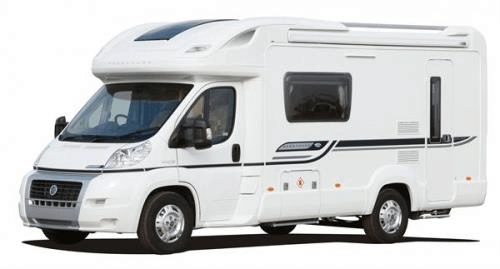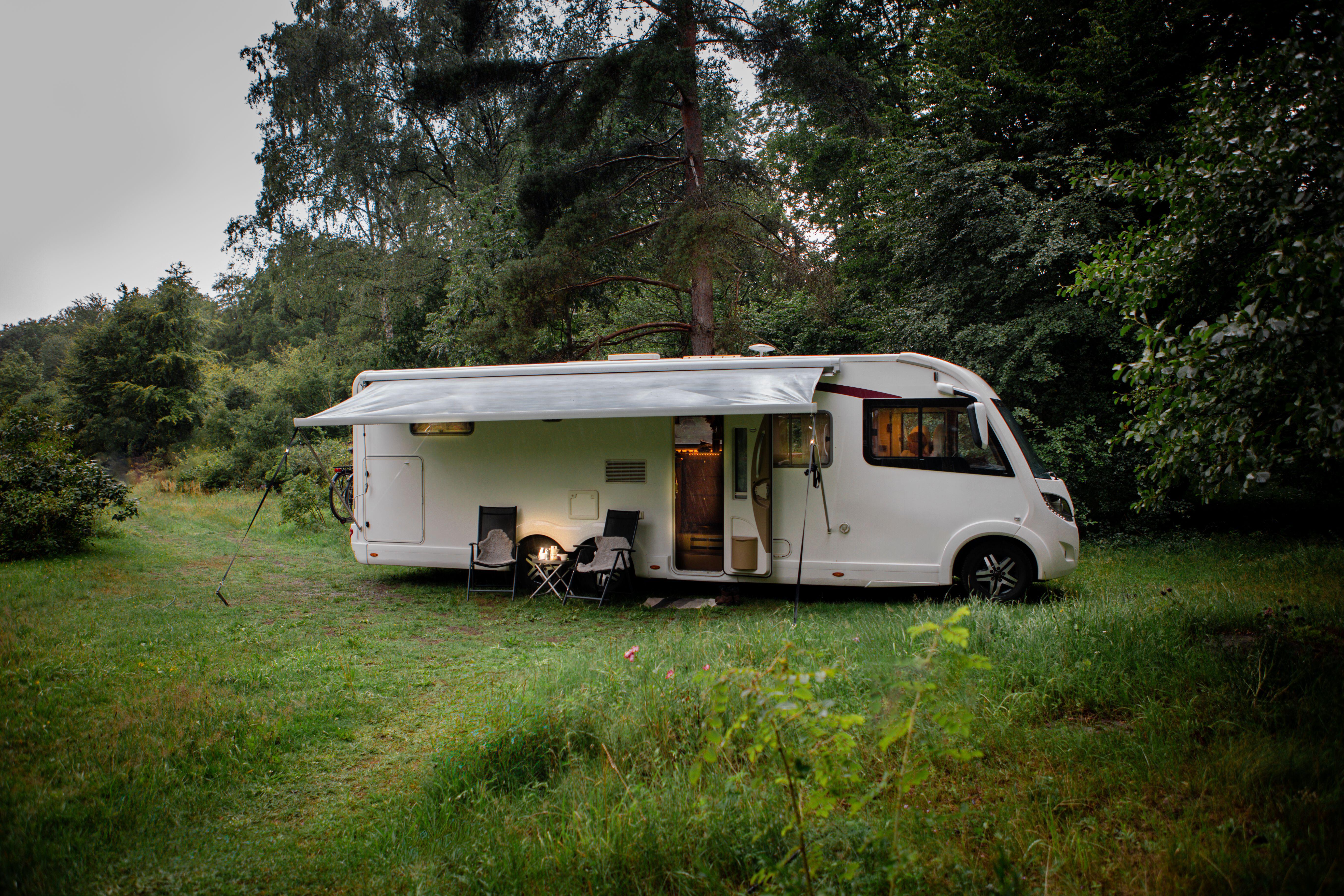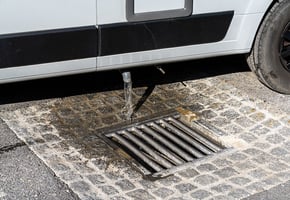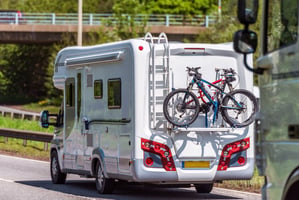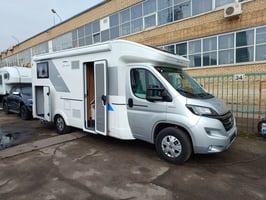Let’s be honest, whilst travelling around the country in a motorhome is a very exciting thing to be...
What is wild camping? Well, it’s when you set up camp, away from a campsite, ideally somewhere beautiful and a bit off the beaten track. It sounds pretty amazing, doesn’t it… being able to pitch up somewhere remote, with no-one else around you - perhaps doing a hike along the trails, followed by falling asleep under the stars and then waking up to a view of a mountain or a lake. What could be better? And the good thing is, you can wild camp in your motorhome, in a tent, or by doing a mix of both.
However, before you think about setting off, let’s look at some of the basics that you’ll need to consider first. You don’t want to get to the middle of nowhere and suddenly realise you’ve forgotten something vital, such as a means of getting water. Or that you don’t have a power pack (god forbid). Also, the rules concerning wild camping in the UK are pretty strict in order to protect the land and wildlife from any damage, so you do need to be mindful before you go of what you can and can’t do, and where you can actually go - including on whether or not you can take your motorhome.
Read on to find out all of our top tips to make your wild camping trip go smoothly!
Keep it small
Generally, it’s best to wild camp in small groups only - this ensures less noise, less disruption, and probably less disagreement with landowners. Whatever your group size, always try to reduce the noise and light you produce at nighttime - the whole point of going off grid is to experience the wonders of nature, so let them be your backdrop and entertainment rather than your speaker.
Leave no trace
Make sure you take away everything you brought with you, and don’t leave any litter behind. Also, don’t disrupt the area you’ve stayed in too much - it’s not a good idea to take plant cuttings away, for example - the idea being that if everyone did it, it could be a bit destructive to the local environment. It’s also considered best practice to arrive late and leave early, as this tends to cause the least disruption - others might not even know you’ve been there and that’s probably how it should be. Finally, don’t start a fire unless it is stated it is allowed, either on signage or by you researching the area’s rules online.

Don’t annoy people
Don’t be annoying to locals, if there are any. Generally, the unspoken rule seems to be to move on after one night. As with the first point above, keep the noise down, and pick a suitable place to pitch up that doesn’t impact on traffic nor the amazing views for others. It’s probably a good idea to consider your drinking, too - we’ll be covering booze and motorhoming in a future blog article.
Don’t annoy the wildlife
This is even more important than the point above. Before you park up, just check your surroundings to make sure there aren’t any nests, potential burrows or other animal homes near you that might be affected or the animals themselves spooked by your presence, especially if it’s the time of year they may be nesting or looking after their young.
Be selective where you stay
You might be tired (or lost) and just want to get set up for the night, but have a quick think about how safe the area looks, and any hazards you can spot in the vicinity. Open water isn’t a great idea if you’ve got young children, for example. And don’t set up camp near a cliff or steep edge, people. If you’ve seen The Croods, you’ll know why…
Do be sure to check for ‘no camping’ signs - if a landowner asks you not to camp on their land, it is important to respect their wishes.
Check the rules for the country you are in
For most of England, Wales and Northern Ireland, there is no legal right for anyone to wild camp just anywhere, so you are supposed to get permission from the landowner first. Dartmoor used to be the only area in England and Wales where people could wild camp without permission (but for no more than two consecutive nights), however this right has been removed after the landowners won a legal battle to prevent people doing just that.
In Scotland, there are certain areas (such as Loch Lomond) where you need a permit to wild camp, but because of a piece of legislation - the Land Reform (Scotland) Act 2003 - thankfully wild campers (although not those in motorised vehicles - so this is one for the tents) are allowed to pitch up on many parts of unenclosed land, as long as it’s not private property, or something like a business or school ground.
Basically, if you want to wild camp ‘legally’ in the UK you should ask permission first. In practice, does this happen? Possibly not, but if you are asked to move on by the landowner or the police, you should do so straight away - if you don’t, you could get a fine (or worse).
What if you don’t know how to contact the landowner beforehand? Well, you can do an online search, especially if the land is within a national park as that can make it easier to locate the owner, or you might consider how likely you are to actually get caught if you’re pitching up in the countryside at night. It is important that everyone doing wild camping is considerate of the land, though, because we don’t want more laws - or stricter ones - being introduced because the minority have ruined it for the majority.

Plan for all weathers… and the morning after
Now, even if you’re travelling in your motorhome, you might think about sleeping outside in a tent or under the awning for the night, especially if the weather is good. A word of caution from personal experience, however, if thinking about sleeping entirely outside with no shelter. Once, when kayaking across part of Canada, both I and the people I was with thought it would be a good idea to sleep out under the stars by a lake, as it was such a beautiful evening. Fast forward a few hours and we woke up the next morning, covered in dew (plus something awful that looked like bird droppings) and we were absolutely stiff with cold. Not as idyllic an awakening as we had hoped for…
Make sure you’ve got the right supplies
Here’s a list of things to think about in terms of taking the correct supplies:
1. Water. If you can’t take it with you, though, you may need to get it from a running water source. Do avoid still water if you can, as there might be some nasties in it. Check there are no dead things languishing upstream first, and then boil the water before use. In terms of storage, water bladders pack nice and flat, if you want to save space when having to carry empty containers.
2. A first aid kit, obviously.
3. A means of communication with the world. This might require chargers or a power pack, so remember to charge them adequately before you go, and take the right leads that actually work with your device.
4. Some sort of navigation means might be useful, be that a map or a bit of tech. Work out how to use a compass (or where the one on your phone is before you go).
5. Take warm layers, as the temperature might drop dramatically. Waterproofs, too, for any weather changes.
6. Have a decent light that won’t run out for the duration of your wild camp.
7. A stove, if you want a hot meal, and perhaps some dehydrated meals - honestly, don’t knock them until you’ve tried it. I’ve had a pretty decent Mac and Cheese out of a packet. And, if you’re that tired and hungry, you’ll pretty much eat anything, anyway.
Think about your safety
It is always a good idea to tell people where you are planning to go, and when you will be returning. That might be people at home, or a campsite owner if you are venturing off for a bit from your current pitch on site.

Have a trial run
If you’ve bought new stuff for your wild camp, test it all first (perhaps in the garden) so you know how it works and, also, if you then think you will really need it in the wild. Those napkins can go, then…
Wild camping is an amazing thing to try and can lead to some exciting adventures. If you haven’t done it and you fancy trying it, do give it a go. As we’ve said, prepare for your trip in advance, stay safe whilst there, and respect the land you stay on - and no doubt you’ll enjoy every minute. Do let us know in the comments some of your favourite places to wild camp!


